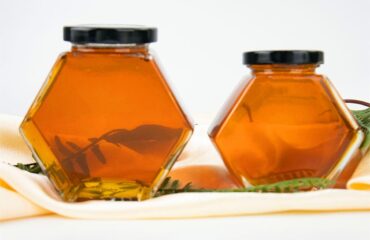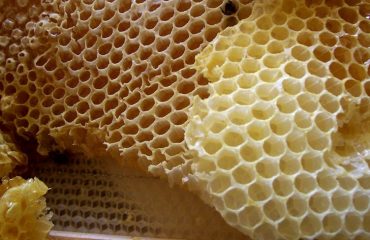In the vast and intricate tapestry of nature, honey stands out as a shimmering thread of sweetness and wellness. This ancient nectar, harvested by bees from the depths of flowers, has been a staple in human diets for millennia, not just for its delightful taste but also for its profound health benefits. Among the myriad varieties of honey, eucalyptus honey stands tall, with its unique formation process and distinctive functional characteristics that set it apart.
Eucalyptus honey is a natural gift that has gained popularity due to its exceptional qualities. Produced by bees collecting nectar from eucalyptus flowers, this honey offers a wide range of health benefits that make it a valuable addition to any diet. In this comprehensive guide, we will explore the fascinating world of eucalyptus honey, delving into its formation, nutritional profile, and the numerous ways it can enhance your well-being.
The Formation Process of Eucalyptus Honey
The journey of eucalyptus honey begins with the diligent work of bees. These remarkable insects play a crucial role in the production of this natural wonder. The process involves several key steps that transform the nectar of eucalyptus flowers into the golden, syrupy substance we know and love.
Collection of Nectar
Bees start by visiting eucalyptus flowers, which are known for their high sugar content and unique chemical composition. Using their long, tube-like tongues, bees suck the nectar from the flowers and store it in their stomachs. This nectar serves as the foundation for the honey that will eventually be produced.
Regurgitation and Enzyme Addition
Upon returning to the hive, bees regurgitate the collected nectar into their stomachs. Here, the nectar is mixed with enzymes that begin the process of transforming it into honey. These enzymes play a vital role in breaking down the complex sugars in the nectar into simpler forms that are more easily digestible for humans.
Honeycomb Deposition and Evaporation
The enzyme-treated nectar is then deposited into honeycombs. The bees fan their wings to create a draft, which helps to evaporate excess water from the nectar. This evaporation process is essential for concentrating the nectar into the thick, sweet substance we recognize as honey. The unique climate, soil, and floral characteristics of the eucalyptus trees also influence this process, giving eucalyptus honey its distinctive properties.
Nutritional Profile of Eucalyptus Honey
Eucalyptus honey is not just a delicious sweetener; it is also packed with essential nutrients that contribute to its health benefits. Understanding the nutritional composition of this honey helps us appreciate why it is considered such a valuable addition to a healthy diet.
Vitamins and Minerals
Eucalyptus honey contains a variety of vitamins and minerals that are essential for maintaining good health. These include vitamin C, which is known for its immune-boosting properties, vitamin B6, which supports brain function and helps regulate sleep patterns, and niacin, which plays a role in converting food into energy. The mineral content includes calcium, which is crucial for strong bones and teeth, iron, which helps transport oxygen in the blood, magnesium, which aids in muscle and nerve function, and potassium, which helps maintain healthy blood pressure levels.
Antioxidants
One of the most notable features of eucalyptus honey is its high antioxidant content. Antioxidants are compounds that help protect the body from damage caused by free radicals. Free radicals are unstable molecules that can contribute to chronic diseases such as cancer, heart disease, and Alzheimer’s disease. The antioxidants in eucalyptus honey help neutralize these harmful molecules, reducing the risk of these conditions and promoting overall health.
Amino Acids and Other Bioactive Compounds
Eucalyptus honey also contains amino acids, which are the building blocks of proteins. These amino acids contribute to the honey’s nutritional value and may offer additional health benefits. Additionally, the honey contains other bioactive compounds, such as flavonoids and phenolic acids, which have been linked to various health-promoting effects.
Health Benefits of Eucalyptus Honey
The unique combination of nutrients and bioactive compounds in eucalyptus honey gives it a wide range of health benefits. These benefits make it a powerful natural remedy that can be incorporated into your daily routine to support overall well-being.
Immune System Boost
Eucalyptus honey has been shown to boost the immune system, helping the body fight off infections and diseases. The high antioxidant content helps strengthen the body’s defense mechanisms, while the vitamins and minerals provide essential support for immune function. Regular consumption of eucalyptus honey can help keep your immune system in top shape, reducing the frequency and severity of illnesses.
Antimicrobial Properties
The antimicrobial properties of eucalyptus honey make it effective against a variety of harmful bacteria and fungi. These properties are primarily due to the high hydrogen peroxide content and other bioactive compounds present in the honey. Eucalyptus honey has been shown to be effective against bacteria such as Staphylococcus aureus, Escherichia coli, and Pseudomonas aeruginosa. This makes it a valuable natural remedy for treating minor wounds, cuts, and infections.
Respiratory Health
Eucalyptus honey has natural decongestant and expectorant properties, making it an effective remedy for colds, coughs, and sore throats. The aromatic compounds in the honey help relieve nasal congestion and promote the expulsion of mucus, providing relief from respiratory symptoms. Additionally, the soothing properties of the honey help coat the throat, reducing irritation and discomfort.
Digestive Health
Eucalyptus honey can also promote digestive health by helping to regulate bowel movements and reducing inflammation in the gut. The prebiotic fibers in the honey serve as food for beneficial gut bacteria, supporting a healthy gut microbiome. A healthy gut microbiome is essential for proper digestion, nutrient absorption, and overall health.
Skin Health
The antibacterial and anti-inflammatory properties of eucalyptus honey make it beneficial for skin health. It can help reduce acne, soothe skin irritations, and promote healing. Eucalyptus honey can be applied topically to the skin or incorporated into homemade face masks and other skincare products.
Incorporating Eucalyptus Honey into Your Diet
Now that you know about the numerous health benefits of eucalyptus honey, you may be wondering how to incorporate it into your daily diet. There are several ways to enjoy this natural wonder and reap its benefits.
As a Sweetener
Eucalyptus honey can be used as a natural sweetener in place of refined sugar. It can be added to tea, coffee, yogurt, oatmeal, and other foods to enhance their flavor and nutritional profile. Unlike refined sugar, which provides empty calories, eucalyptus honey offers essential nutrients and antioxidants.
In Recipes
Eucalyptus honey can be used in various recipes to add a unique flavor and nutritional boost. It can be used in baked goods, dressings, marinades, and sauces. The distinct flavor of eucalyptus honey pairs well with both sweet and savory dishes, making it a versatile ingredient in the kitchen.
As a Natural Remedy
Eucalyptus honey can be used as a natural remedy for various health conditions. For example, it can be taken orally to boost the immune system, soothe a sore throat, or aid digestion. It can also be applied topically to the skin to treat minor wounds, cuts, and skin irritations.
FAQ Module
1. How much eucalyptus honey should I consume daily?
The recommended daily intake of eucalyptus honey varies depending on individual factors such as age, weight, and health status. However, a general guideline is to consume 1-2 tablespoons per day. It is always best to consult with a healthcare professional to determine the appropriate amount for your specific needs.
2. Can eucalyptus honey be used as a substitute for regular honey?
Yes, eucalyptus honey can be used as a substitute for regular honey in most cases. It has a unique flavor and nutritional profile, so it may not be suitable for all recipes or preferences. However, its health benefits make it a valuable addition to any diet.
3. Is eucalyptus honey safe for children?
Eucalyptus honey is generally safe for children over the age of 1. However, it is important to consult with a pediatrician before giving honey to young children, as it can contain bacteria that may cause infant botulism.
4. Can eucalyptus honey be used in baking?
Yes, eucalyptus honey can be used in baking. However, it has a lower water content than some other types of honey, so it may affect the texture of baked goods. It is best to use it in recipes that call for a firm honey or to adjust the amount of other liquids in the recipe accordingly.
5. How should eucalyptus honey be stored?
Eucalyptus honey should be stored in an airtight container in a cool, dark place. This helps preserve its nutritional value and prevent spoilage. It is best to avoid storing honey in the refrigerator, as this can cause it to crystallize.
Eucalyptus honey is a natural wonder that offers a wide range of health benefits. From boosting the immune system to promoting digestive health, this remarkable substance is a valuable addition to any diet. By incorporating eucalyptus honey into your daily routine, you can experience the numerous advantages it has to offer and enhance your overall well-being. Whether you use it as a sweetener, in recipes, or as a natural remedy, eucalyptus honey is a versatile and effective way to support your health. Embrace the power of nature and experience the wonders of eucalyptus honey for yourself.




